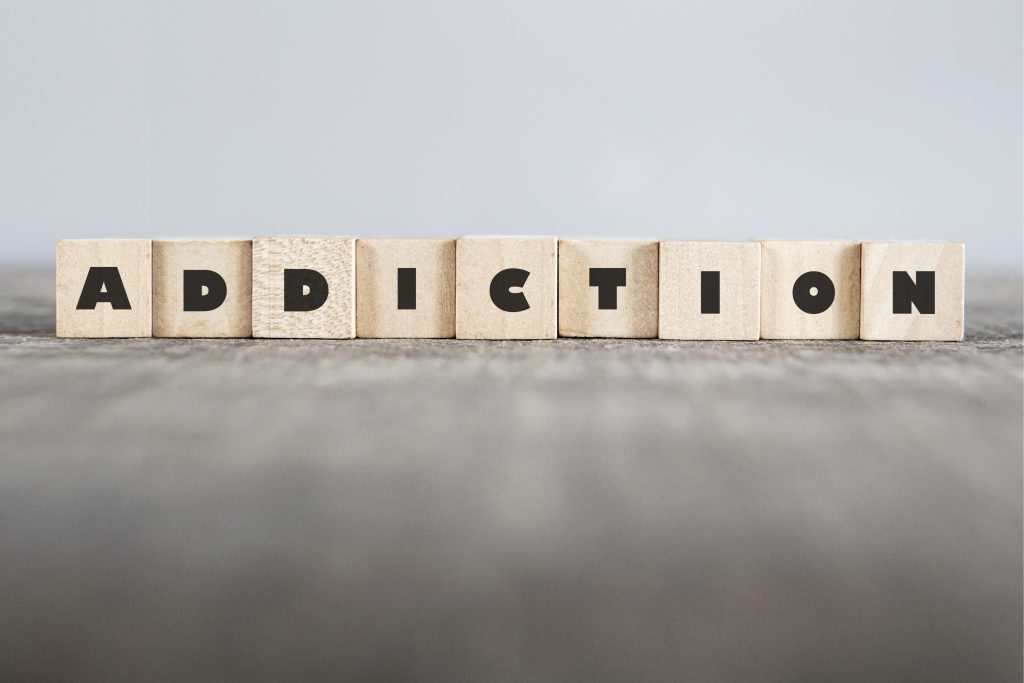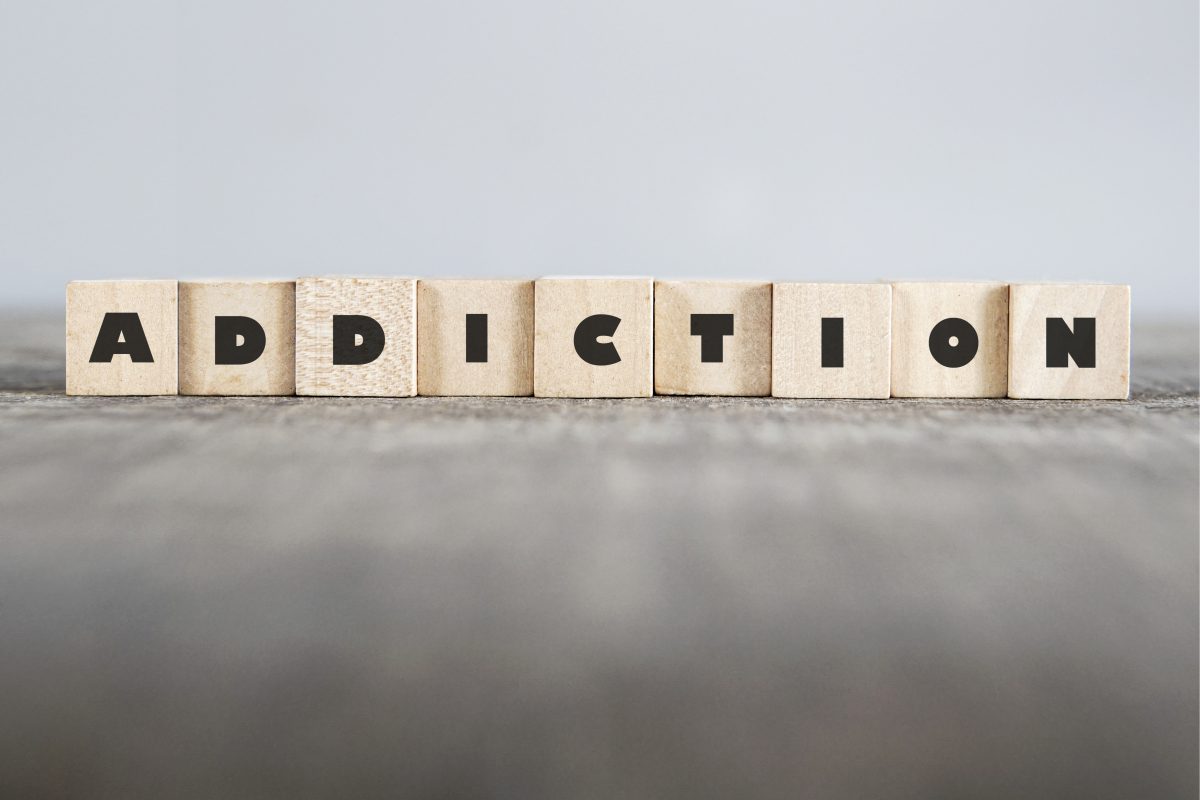What Does Cross Addiction Mean?
Cross addiction, also known as addiction transfer or Addiction Interaction Disorder, is when a person has two or more addictive behaviors. The addictions can include alcohol or other drugs, but can also include addictions to food, gambling, sex, gaming or other compulsive behaviors.
Addiction is the continued use of a substance or engagement in a behavior despite the potential for personal problems, harm and negative consequences. For example, consider a gambling addiction. If you continue to gamble to the point that you can no longer pay your bills, you lose your car or damage relationships, you may have an addiction. You feel compelled to continue to gamble despite negative consequences. Or in the case of sex addiction, you may continue to seek out a variety of sexual partners or consume pornographic material, despite the consequences it might have to your relationships. You may be unable to develop or maintain meaningful relationships because of your addictive behaviors. Damage to your self-esteem is another consequence because your behaviors may not align with your values or morals, yet you continue to engage in the behaviors. You may even want to stop but are unable to do so on your own because you are addicted.
Cross addictions don’t have to occur at the same time. For instance, you may be in recovery from alcoholism and may even be sober for many years, but develop an addiction to another drug or later engage in a compulsive behavior that triggers the brain’s dopamine reward center. People who have one addiction are more susceptible to cross addiction.

How Does Cross Addiction Happen?
Cross addiction occurs for a variety of reasons, but often it is accidental. Someone may have surgery and be prescribed an opioid painkiller like Oxycodone or Tramadol. The good feeling they get from the drug reinforces continued use, eventually leading to increased use until it becomes an addiction.
Lack of understanding is another reason cross addiction can occur. People may know they’re addicted to a particular substance, for example, alcohol. Then perhaps they are prescribed opioids. Since they are not addicted to this new substance, they may think they can use it without becoming addicted. The addiction to the new substance may develop slowly with moderate use, but addiction can, and usually does, progress.
Another reason cross addiction can occur is if someone has unresolved mental health issues, otherwise known as co-occurring disorders or a dual diagnosis. If you have a history of trauma, depression or anxiety, you may start using alcohol and other drugs, or start engaging in compulsive behaviors to ease your emotional discomfort. For example, gaming can be used to escape reality and to avoid social situations that make you uncomfortable. This can lead to feelings of isolation and loneliness but because of the compulsive nature of gaming and the dopamine rewards to the brain, the behavior continues.
How Common Is Cross Addiction?
According to the National Survey on Drug Use and Health, approximately 20.1 million people age 12 or older had a substance use disorder (SUD) related to their use of alcohol or illicit drugs in the past year. The rates of addiction are different for different people as noted by the Surgeon General’s Report. Unfortunately, only one in 10 people receive treatment for their addiction. Many people do not seek a treatment program because they are not ready to stop or think they can do it on their own, while others do not think they have a problem.
How Do You Treat Cross Addiction?
At Hazelden Betty Ford, we believe a Twelve Step program helps with all cross addictions. A good treatment program will also address any co-occurring mental health issue by using evidence-based, proven-effective treatment modalities. Medication-assisted treatments should also be offered when needed to help with the withdrawal from opioid and heroin addictions.
There are Twelve Step programs for all cross addictions, and finding one specific to your addiction is important. A food or sex addict is going to be much more comfortable talking about their addiction with others that share the same addiction. If you cannot find a group meeting in your area, there are many online meetings as well.
How Do You Avoid Cross Addiction?
The best way to avoid cross addiction is by educating yourself and others. If you already have an alcohol or drug addiction, you’re more likely to have or develop a cross addiction. Be aware of the risk and take inventory of what you may be doing to create a cross addiction. People in early recovery from alcohol and other drugs are also more susceptible to cross addiction because their brains are still looking for that feel-good dopamine rush they got when they were using. Knowing that you may be at more risk will help prevent cross addiction.
It’s also important to be your own advocate by educating your doctors and letting them know you have an alcohol or other drug addiction. Avoid taking addictive medications, or if that’s not possible, don’t go home with a large supply. Sometimes having a family member dispense the medications can help ensure you take the medications as prescribed.
Be especially careful with pain medications because they can be extremely addictive. Opioids are the most common form of pain medication, which include morphine (e.g., Kadian, Avinza), codeine, oxycodone (e.g., OxyContin, Percodan, Percocet) and related drugs. Opioids can be used safely for short-term medical use, but alternative forms of pain relief should be explored with your doctor if you are dealing with chronic pain.
Avoid situations that make you want to use alcohol or other drugs. Limit your exposure to certain places and people such as bars, nightclubs, people who are active addicts or other situations where there are temptations to use. Addiction often carries with it a sense of shame and guilt. Addiction is a disease not a moral failing. Keeping it in the dark only perpetuates the stigma. Avoid isolating yourself and instead find new ways to spend your time. People in recovery from alcohol and other drugs enjoy fun, fulfilling lives and relationships. Resolve to fill your life with healthy activities such as exercising, enjoying nature and healthy relationships with sober friends and family.
Cross Addiction: What Is It?
People who have one addiction are more likely to develop another
What is cross addiction?
Cross-addiction is when a person has two or more behaviours that they are addicted to. This is also called addiction transfer or Addiction Interaction Disorder. The addictions can be to alcohol or other drugs, but they can also be to food, gambling, sex, games, or other things people repeatedly do.
Addiction is when someone keeps using a drug or doing a behaviour even though they know it could cause problems or hurt them.
Take a gambling problem as an example. If you keep gambling even though you can’t pay your bills, lose your car, or damage your relationships, you might have a gambling addiction. You feel like you must keep gambling, even though it hurts you. Or, if you have a sex addiction, you might keep looking for different sexual partners or watching pornographic videos, even though it might hurt your relationships.
Because of your addictive behaviours, you might be unable to make or keep close relationships. Damage to your sense of self-worth is another result since your actions may not match your values or morals, but you still do them. Even if you want to stop, you might not be able to because you are hooked.
Cross-addiction can happen at different times. For example, you might be in recovery from alcoholism and have been sober for years. Still, you might become addicted to another drug or do something else that triggers the dopamine reward centre in your brain. Cross-addiction is more likely to happen to people who already have one addiction.
How does cross addiction happen?
Cross-addiction can happen for many different reasons, but it usually happens by accident. After surgery, a person may be given an opioid painkiller like Oxycodone or Tramadol to help with the pain. They keep using the drug because it makes them feel good. Eventually, they use it more and more until it becomes an addiction.
Cross-addiction can also happen because people don’t understand the power of addiction. People may know they are addicted to a particular drug, like alcohol. Then, maybe they will be given opioids. Since they are not addicted to this new substance, they might think they can use it without becoming addicted. Even if you only use the new drug a little, you can still become addicted. Addiction can, and usually does, get worse.
Cross-addiction can also happen if a person has unresolved mental health problems, called co-occurring disorders or dual diagnoses. If you have a history of trauma, depression, or anxiety, you may turn to alcohol, drugs, or compulsive behaviours to make yourself feel better. For instance, you can use games to escape reality and avoid social situations that make you uncomfortable. This can make the person feel alone and isolated, but because gaming is addictive and gives the brain dopamine rewards, the behaviour continues.

How is cross-addiction treated?
At AddictionsUK, we think a Twelve Step programme helps with all addictions. A good treatment programme will also address mental health problems simultaneously by using proven treatment methods. When needed, alcoholics, opioid and heroin addicts should also be able to get help from medications to get through withdrawal.
There are Twelve Step programmes for all addictions; finding one that fits yours is essential. A person addicted to food or sex will feel much more at ease talking to other people who are also addicted to the same thing. There are many online meetings in your area if you can’t find a group meeting.
How do you stay away from cross-addiction?
Learning about it is helpful. If you’re already addicted to alcohol or drugs, you’re more likely to have a cross-addiction or get one. Know the risk and consider what you might do that could lead to cross-addiction. People who just quit drinking or using other drugs are also more likely to become addicted to other substances because their brains are still looking for the dopamine rush they get when using them. Knowing you might be more likely to get addicted will help you avoid it.
It’s also important to be your advocate by teaching your doctors about your addiction and letting them know. If you can’t avoid taking addictive medicines, don’t take many of them home with you. Having a family member give you your medicines can sometimes help ensure you take them as prescribed.
Painkillers can be very addicting, so be especially careful with them. Opioids are the most common type of pain medicine. They include morphine, codeine, oxycodone, and drugs like OxyContin, Percodan, and Percocet. Opioids can be used safely for short-term medical needs, but if you have chronic pain, you and your doctor should look into other ways to treat it.
Stay away from things that make you want to drink or use drugs. Limit your time in bars, nightclubs, around active addicts, and in other places and situations where you might be tempted to use.
When someone is addicted, they often feel ashamed and guilty about it. Addiction is not a moral flaw; it is a disease. Keeping it a secret will only add to the shame. Don’t shut yourself off; find new things to do with your time. People who have stopped drinking or using drugs can have fun and have good relationships.
Decide to fill your life with healthy things, like working out, enjoying nature, and having healthy relationships with sober friends and family.
If you or a loved one is struggling with an addiction, call Freephone at 0800 140 4044
Freephone: 0800 140 4044
Local rate: 0300 330 3040



